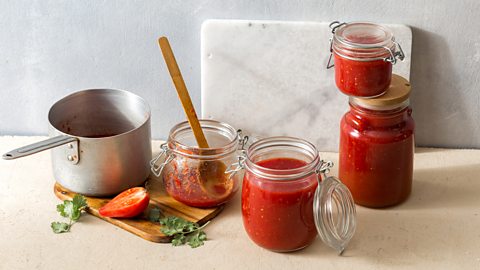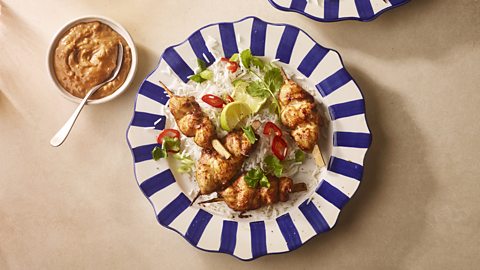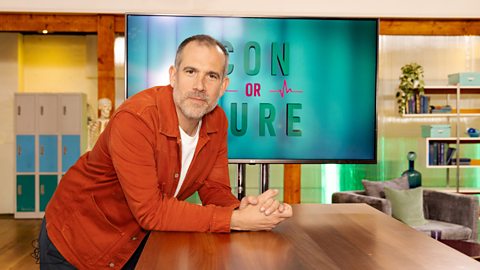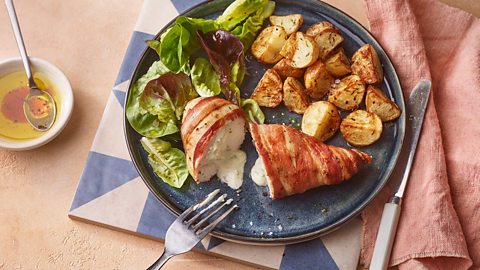Can changing your diet improve fertility?
BBC Radio 2 and 5 Live have teamed up to discuss all aspects of fertility. Tuesday 29 October is 5 Live’s Fertility Day. Find out more information and catch-up here.
According to the NHS, if couples are trying to conceive naturally and have unprotected sex every two to three days they will have an 84 percent chance of success within a year.
But what happens when you’re one of the unlucky ones? Could changing your diet help aid your fertility? Dr Larisa Corda gives her advice and two individuals reveal why they believe making changes to the food and drink they consume helped them to conceive…
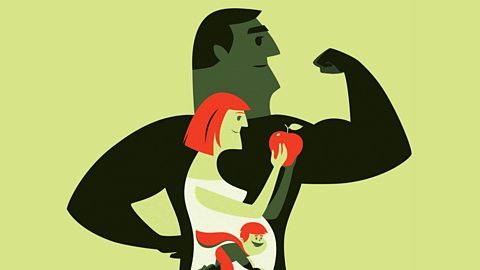
Does science show diet aides fertility?
Fertility specialist, Dr Larisa Corda, believes fertility can be enhanced by diet. “There is strong evidence that healthy preconception dietary patterns among men and women of reproductive age have a beneficial effect on fertility. It’s one of the main variables you have the power to control when it comes to your reproductive health. A dietary pattern that recommends a high consumption of wholegrains, monounsaturated or polyunsaturated oils, vegetables, fruits and fish, has been associated with improved fertility in women and higher semen quality in men, across multiple studies.”
Dr Larisa highlights further research that backs up the link between diet and fertility. “In the Nurses' Health Study (NHS) II, women who had the highest intake of a diet conducive to fertility, comprised of plant protein from vegetable sources, full-fat dairy foods, iron and monounsaturated fats, during the preconception period, were found to have a 66 percent lower risk of infertility related to ovulatory disorders and a 28 percent lower risk of infertility due to other causes.”
Dr Larisa suggests getting your seven or eight hours of sleep a night to help control chronic stress, including physical exercise in your lifestyle to help not only improve your BMI but to “increase the blood flow to the main reproductive organs” and finally “having frequent and regular sex is important.”
‘I was told we couldn’t conceive naturally with my sperm count, so I completely changed my lifestyle’
Owen, 36, London
 Image source, Getty
Image source, Getty“‘You won’t get pregnant naturally. Of course there’s no 100 percent no’s in science, but you won’t. You can’t conceive naturally with your sperm count as low as it is.’
“When, four years ago, the fertility specialist sat me and my wife down and said these words it was horrible. I was the problem.
“More than a year earlier, my wife and I had started trying for a baby. She had been ready for a while and as I had seen friends become dads to their new-borns – it was like a switch had gone off in my brain suddenly. Having a family went from being a possibility to needing to be my reality.
“We thought it was going to be easy. We were under the illusion that it would just happen.
“Month one, month two, month three, month four and then month five came and went. We then really started focussing on ovulation dates and the right times to conceive. Month six, month seven, month eight, month nine. Still nothing. After a year of trying and failing to conceive we went to the GP.
“I was sent for tests first – because the ones for men are far less invasive than for women. But nothing became clearer, I ended up having to give three sperm samples, each with a three-week wait for results because every time the result came back as ‘inconclusive’.
“We were referred for fertility treatment and at our first appointment the specialist fertility doctor looked at my inconclusive results in more detail. ‘You’ve got hardly any active sperm, that’s why it’s coming back as inconclusive’, he said.
“He told me the average sample contained a sperm count of 25–250 million. I, he said, had one million. I had nothing going on.It was then we were told we wouldn’t be conceiving naturally and were booked in for another appointment in three months’ time.
“Just before we left he asked: ‘On your first test you have a sperm count of one million, on your second test one million but on your third test you have six million. Did you do anything differently?’
“I realised that was when I’d cut back on smoking, limiting it to weekends only. I thought, if that one change made it jump from one million to six million there must be other things I could do to improve my fertility.
“That day I stopped smoking completely. I swapped my regular underwear for baggy boxer shorts, I stopped having baths, stopped putting my laptop on my lap. I tried everything and hoped it’d help.
“Then I made drastic changes to my diet.
“I gave up sugar, reduced my carbs and took supplements. I exercised more and started increasing my water and vegetable intake.
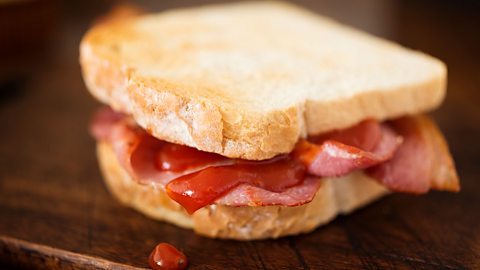 Image source, Getty
Image source, Getty“Before, I’d have a bacon sandwich for breakfast, then a sandwich, crisps and chocolate for lunch, and for dinner something like a frozen pizza. I ate a lot of processed and fried foods and loved chocolate and sweets.
“My new diet was completely different. For lunch, we’d make vats of roast butternut squash and broccoli and grilled chicken, and I’d combine it with grains such as lentils or couscous. I started eating foods containing healthy fats, including avocado, too.
“It wasn’t always easy. When giving up sugar I got this horrible foggy headache for the first week, and when I cut down on carbs I felt unsatisfied.
“The hard work was worth it. Just the day before the IVF follow-up appointment, my wife discovered she was pregnant.
“Our son, is now three and I’m still living the same healthy lifestyle. We now have a one-year-old daughter.
“It’s a shame society and the male ego can stop a lot of wanted-children from being born. I think men don’t want to admit they could have a problem with fertility and that’s an issue in seeking help. It’s not talked about enough. But, if faced with admitting there’s a problem or not having a child, well, I know what I would choose.”
‘Addressing my diet and nutrition gave me control back through the IVF process.’
Charlotte, 42, South West
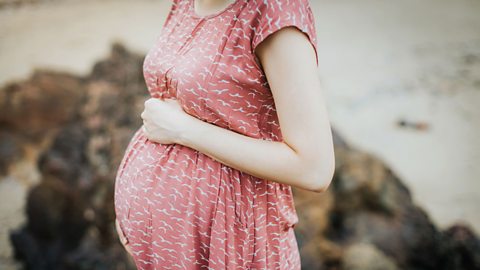 Image source, Getty Images
Image source, Getty Images“I’ve always wanted to have children, but I was 38 when I met my partner. We were trying for a baby within a couple of years of getting together and hoped we’d conceive naturally.
“After a year we visited our GP to investigate what was happening. We were told we’d need to get tests done and seek fertility treatment. The results showed there were age-related issues on my side and my partner had issues with his sperm too.
“We started the IVF process, but – and this is something I feel quite strongly about – the clinic didn’t really bring up nutrition. Obviously they said ‘don’t smoke, don’t drink’ but mostly the focus was on the medical point of view. With hindsight, I think attention should be given to how you can help yourself holistically too.
“After three rounds of IVF I decided to look at my nutrition. I’d joined a Facebook group for people going through IVF and I noticed posts with people talking about nutrition advice they’d received. I got in touch with one fertility nutritionist who was repeatedly referenced and my partner and I soon started new diet plans.
“I was advised to switch to a plan that focussed on improving the quality of my eggs. It was basically a Mediterranean diet and I made sure I was getting my five a day. But, there was also an emphasis on making sure I had enough protein. When I was going through the stimulation stage of IVF, I started drinking whole organic milk.
“When I was taking the IVF medication, I could feel like I wasn’t contributing to the process. But by focussing on my nutrition I felt more in control. Plus on the previous rounds (of IVF) I’d felt exhausted, now I didn’t feel as tired, maybe because my nutrition was where it should be.
“My partner’s plan was again Mediterranean-based, but there was also an emphasis on adding antioxidants to his diet.
“It wasn't easy and it’s taken more than two years of trying and seven rounds of IVF to get to the stage we’re at now: I’m 20 weeks pregnant and I still can’t quite believe it.
“I’ve got chronic morning sickness, which is making it hard to stick to a specific diet as what I can and can’t eat changes considerably. But I’ve continued drinking the whole milk and have found it’s helped me feel better.
“It’s not just diet and nutrition that I think should be given more of a focus. I’ve found the IVF experience quite lonely – people don’t know how to offer help and support. If there was more advice on that too it could only be a good thing.”
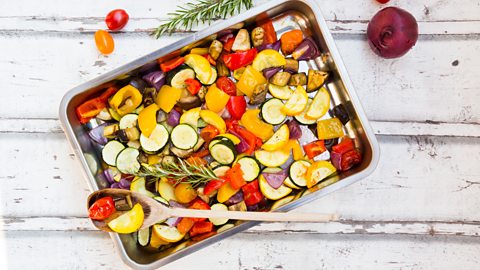 Image source, Getty
Image source, GettyDr Larisa Corda’s verdict on these diets
Owen’s meal swaps match Dr Larisa’s advice above, and the medical expert highlights there’s evidence to support Charlotte’s Mediterranean diet too. “The benefits of a Mediterranean diet in terms of improving general overall health, as well as fertility, are well documented”, says Dr Larisa.
In terms of Charlotte’s addition of whole milk to her diet, Dr Larisa states the current research examining the impact of dairy on fertility is limited. She says the NHS II study shows that while no relationship was found between the total intake of dairy products and risk of infertility, “full-fat dairy products were associated with a lower risk of infertility related to problems with ovulation while low-fat dairy products were associated with a higher risk.” She also points to a US study that shows a link between low-fat dairy products and fertility.
All pictures posed by models
